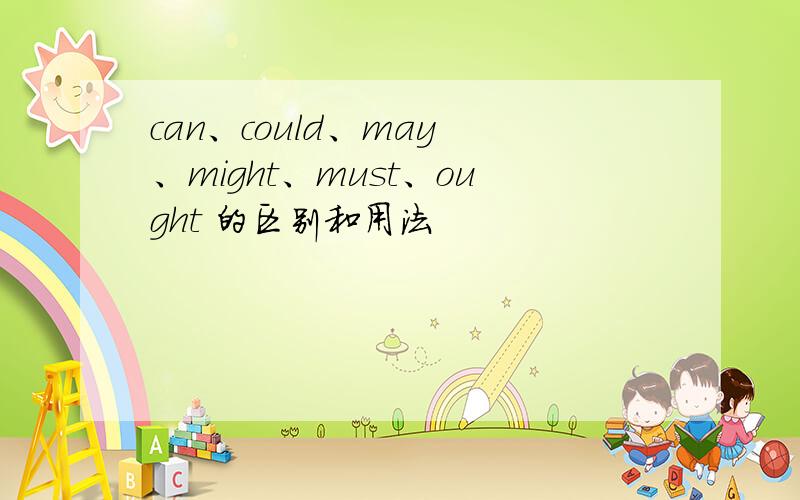can、could、may 、might、must、ought 的区别和用法
来源:学生作业帮助网 编辑:作业帮 时间:2024/04/28 00:51:31

can、could、may 、might、must、ought 的区别和用法
can、could、may 、might、must、ought 的区别和用法
can、could、may 、might、must、ought 的区别和用法
can 可表示“可以,能够”,即表示允许或者能力.
例如:Can you help me?你可以帮我吗?I can swim.我会游泳.
也可表推测.常常用于否定推测.He can't be a teacher.他不可能是个老师.用于肯定句也可,表示“可能”,强调有这种可能性.It can be hers.它有可能是她的.
could一般用于过去式,作can的过去式用.但也可用于现在时中,表达委婉.
例如:Could you help me?你可以帮我吗?
may 也可表示“可以”的意思,表征求意见或允许.
例如:May I come in?我可以进来吗?You may watch TV for a while.你可以看一会儿电视.
也表推测,表示“也许,可能”.例如;He may be a teacher.他可能是个老师.
might和may的关系与could和can的关系类似.
must可表示“必须”的意思.如:You must get up now.你必须起床了!
注意:must的一般疑问句回答时,若为否定回答,则应为:No ,sb.needn't/don't have to.不,sb.不需要(这样).
must可表推测,用于肯定的推测.如:He must be a teacher.他肯定是个老师.
ought to/should 应该.You ought to arrive on time.你应该准时到达.
注意,当情态动词表推测时,反义疑问句根据情态动词后的动词和主语而定.
如:He must be a teacher,isn't he?
不懂追问~